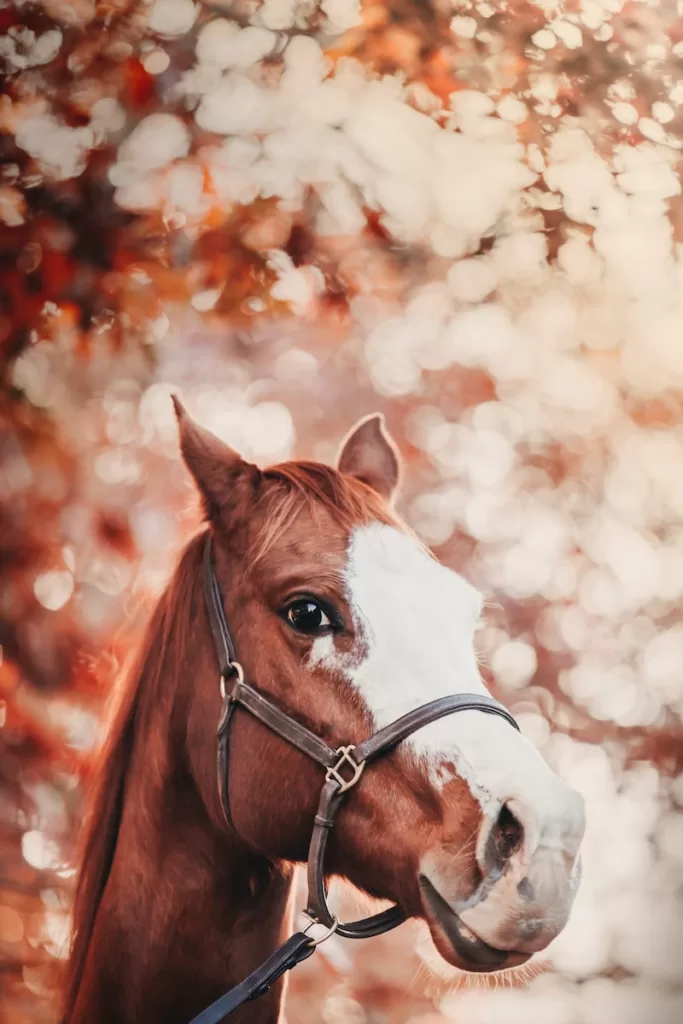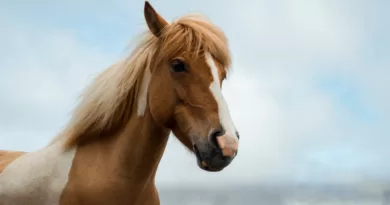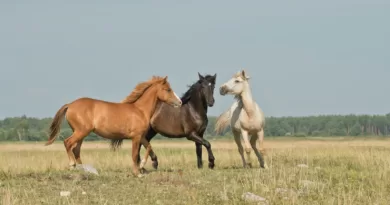How Long Do Horses Live on Average: Unveiling the Secrets of Equine Longevity
Horses, with their majestic beauty and remarkable companionship, have captured the hearts of humans for centuries. Whether you’re an avid equestrian or simply fascinated by these magnificent creatures, one question often crosses the mind: How long do horses live on average? In this in-depth exploration, we delve into the factors that influence a horse’s lifespan, answer your burning questions, and offer insights into ensuring a long and healthy life for your equine companion.
The Average Lifespan of Horses: What You Need to Know
To understand the average lifespan of horses, it’s essential to consider several key factors. These factors not only shed light on the longevity of these graceful animals but also provide guidance for horse owners and enthusiasts.
1. Breed and Size Matter
Horse breeds vary significantly in size, genetics, and physical attributes. These differences can impact their overall lifespan. Smaller horse breeds tend to live longer, often surpassing 30 years, while larger breeds may have a shorter lifespan, averaging between 20 to 25 years. For example, ponies and miniature horses often outlive their larger counterparts.
See Also: How long do horses live? Amazing Facts About Horses’ Life
FAQ 1: Do miniature horses live longer than regular-sized horses?
2. Care and Nutrition
Proper care and nutrition play a pivotal role in determining a horse’s lifespan. Horses that receive balanced diets, regular exercise, and routine veterinary care are more likely to live longer and healthier lives. Neglecting these essential factors can lead to various health issues and a reduced lifespan.
FAQ 2: What is the ideal diet for ensuring a horse’s longevity?
3. Genetics and Hereditary Factors
Just like humans, horses inherit certain genetic traits that can affect their health and lifespan. Some genetic factors may make a horse more susceptible to certain diseases or conditions, while others may contribute to their overall robustness and longevity.
FAQ 3: Can you predict a horse’s lifespan based on its genetics?
4. Living Conditions
The environment in which a horse lives also has a significant impact on its lifespan. Horses that are housed in clean, well-maintained stables with access to pasture tend to fare better than those subjected to poor living conditions. Proper shelter, protection from extreme weather, and social interaction are essential for a horse’s overall well-being and longevity.
FAQ 4: How can I create the best living conditions for my horse?
5. Exercise and Activity
Regular exercise and mental stimulation are vital for a horse’s physical and mental health. Horses that are kept active and engaged in various activities tend to live longer and experience fewer health problems. Adequate exercise helps maintain healthy body weight, joint function, and cardiovascular health.
FAQ 5: What are some effective ways to keep my horse physically and mentally stimulated?
6. Preventive Healthcare
Routine veterinary check-ups, vaccinations, and dental care are crucial for ensuring a horse’s longevity. Regular health assessments can detect and address health issues early, preventing them from becoming severe and potentially life-threatening.
FAQ 6: How often should I schedule veterinary visits for my horse?
7. Age and Life Stages
Horses, like humans, go through different life stages, and their needs change as they age. Understanding these stages and providing appropriate care and nutrition during each phase is essential for maximizing a horse’s lifespan.
FAQ 7: What are the specific care requirements for senior horses?
Frequently Asked Questions about Horse Lifespans
Now that we’ve covered the key factors influencing a horse’s lifespan, let’s address some common questions that horse enthusiasts often have:
FAQ 1: Do miniature horses live longer than regular-sized horses?
Miniature horses, often called mini horses or ponies, do tend to have longer lifespans compared to regular-sized horses. On average, miniature horses can live well into their 30s, while larger horse breeds typically have an average lifespan of 20 to 25 years. The smaller size of mini horses puts less strain on their bodies, which can contribute to their increased longevity.
FAQ 2: What is the ideal diet for ensuring a horse’s longevity?
Ensuring your horse receives a balanced diet is essential for its longevity. Here are some key dietary considerations:
- Quality Forage: High-quality forage, such as grass hay or alfalfa, should make up the majority of a horse’s diet.
- Proper Nutrition: Consult with a veterinarian or equine nutritionist to determine your horse’s specific dietary needs, taking into account factors like age, activity level, and any health conditions.
- Regular Feeding Schedule: Stick to a consistent feeding schedule to prevent digestive issues and ensure your horse receives the necessary nutrients.
- Fresh Water: Access to clean, fresh water is vital for a horse’s overall health.
FAQ 3: Can you predict a horse’s lifespan based on its genetics?
While genetics do play a role in a horse’s lifespan, predicting it solely based on genetics is challenging. Horses inherit various traits from their parents, including those related to health and longevity. However, other factors, such as care, nutrition, and living conditions, also significantly impact a horse’s lifespan. It’s essential to focus on providing the best possible care to maximize your horse’s chances of a long and healthy life.
FAQ 4: How can I create the best living conditions for my horse?
Creating optimal living conditions for your horse involves several key elements:
- Safe Shelter: Ensure your horse has access to a well-maintained shelter that protects them from extreme weather conditions.
- Clean Environment: Regularly clean and maintain the stable or pasture to prevent the buildup of waste and reduce the risk of disease.
- Social Interaction: Horses are social animals, so provide them with opportunities to interact with other horses to prevent loneliness and boredom.
- Proper Ventilation: Adequate ventilation in stables is essential for maintaining good respiratory health.
FAQ 5: What are some effective ways to keep my horse physically and mentally stimulated?
Keeping your horse physically and mentally stimulated is crucial for their well-being. Here are some effective ways to achieve this:
- Regular Exercise: Engage your horse in regular exercise, including riding, lunging, or turnout in a pasture.
- Toys and Enrichment: Provide toys and objects that encourage mental stimulation, such as treat-dispensing toys.
- Variety in Routine: Change up your horse’s routine to prevent boredom, including trying new riding trails or activities.
- Social Interaction: Allow your horse to interact with other horses to satisfy their social needs.
FAQ 6: How often should I schedule veterinary visits for my horse?
Regular veterinary visits are essential for maintaining your horse’s health. The frequency of visits may vary based on your horse’s age, health, and specific needs. However, as a general guideline, most horses should receive an annual wellness check-up, vaccinations, and dental care. Senior horses or those with ongoing health concerns may require more frequent visits.
FAQ 7: What are the specific care requirements for senior horses?
Senior horses have unique care requirements to ensure they enjoy a comfortable and healthy life in their golden years. Some key considerations include:
- Specialized Diet: Adjust the senior horse’s diet to accommodate changes in dental health and metabolism.
- Regular Dental Care: Dental problems are common in older horses, so schedule regular dental check-ups and adjustments.
- Joint Health: Provide joint supplements or medications as needed to support mobility and comfort.
- Regular Exercise: Senior horses benefit from light exercise to maintain muscle tone and joint flexibility.
Conclusion: Maximizing Your Horse’s Lifespan
In the quest to answer the question, how long do horses live on average, we’ve explored the multifaceted factors that influence equine longevity. From breed and genetics to care and living conditions, there are numerous elements at play. As a responsible horse owner or enthusiast, your commitment to providing proper care, nutrition, and healthcare can significantly impact your horse’s lifespan.
Remember that horses are not just pets; they are beloved companions and partners. By understanding their needs and investing in their well-being, you can ensure a long and fulfilling life for these magnificent creatures.
If you have more questions or need further guidance on horse care and longevity, don’t hesitate to reach out to a qualified veterinarian or equine specialist. Together, we can celebrate the beauty and majesty of horses for many years to come.
Enjoyed this article? You May Also Like:
- Learn in 5 minutes about Cryotherapy for Horses
- Penicillin in Horses; Impeccable Guide in 10 minutes
- Excede Antibiotic For Horses, Fantastic Facts in 5 minutes
- The Science of Oxytocin in Horses: How This Hormone Influences Equine Behavior
- Can Horses Swim? Everything You Need To Know About Horse Swimming






